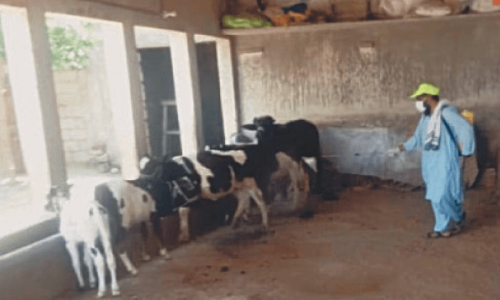ISLAMABAD: A study released by the World Health Organisation and the United States National Cancer Institute has found that tobacco use burdens countries with over $1 trillion a year in healthcare costs and lost productivity.
The study, titled ‘The Economics of Tobacco and Tobacco Control’, found that tobacco use does not contribute to economic development, but measures to reduce tobacco use are highly cost-effective and do not harm economies.
The head of The Network, an NGO working on the hazards of tobacco use, Nadeem Iqbal told Dawn it was unfortunate that the government considers tobacco sales to be a form of revenue generation.
WHO report finds that tobacco use does not contribute to economic development
“The fact is that the increase in tobacco product sales is a loss for the state, as it increases health expenses and decreases productivity. There are even more problems in developing countries like Pakistan,” he said.
“Heads of households get sick, usually they get cancer, because of which they cannot earn for their families and also have to spend a lot on their treatment. Studies are needed for accurate data in Pakistan in this regard. Universities should encourage these sorts of studies,” Mr Iqbal said.
The national coordinator of the Coalition for Tobacco Control, Khurram Hashmi said tobacco is one of the top five contributors to health problems and disease.
“Countries like Pakistan suffer more because we do not have regulation mechanisms for tobacco. In developed countries teenagers have limited access to tobacco products, but here they can be purchased without any difficulty,” he said.
“Teenagers can get tobacco products from any shop and they can use them without any checks. The prices are affordable so they also do
not face any difficulty when buying those products.”
“Here a number of people have cancer, and cancer treatment is very costly. The government should try to reduce tobacco use as much as possible,” Mr Hashmi added.
According to an official statement, the WHO report is a comprehensive review of the economic impact of tobacco use and global tobacco control efforts over nearly 20 years.
The report states that tobacco use disproportionately harms the world’s most vulnerable populations.
Tobacco use is increasingly concentrated among low-income and other vulnerable groups, and accounts for a significant share of health disparities between the rich and poor, the report says.
These disparities are made worse by a lack of access to healthcare, a diversion of household spending from basic needs to tobacco and increased healthcare spending and reduced income stemming from tobacco-related diseases.
The report also finds that health disparities are reduced by high tobacco taxes and prices, and says that contrary to the claims of the tobacco industry, it is tobacco use – and not taxes on tobacco products – that disproportionately harms the poor.
The report also assess the impact of tobacco control measures such as significant tobacco tax and price increases, tobacco marketing bans, pictorial warnings on products, smoke-free policies and population-wide tobacco cessation programmes.
These measures are called for by the WHO Framework Convention on Tobacco Control, which obligates 180 countries to implement them to reduce tobacco use.
The report finds that significant tobacco tax and price increases are the most cost-effective of these policies.
The report claims that the tobacco industry’s deep pockets and deadly tactics remain the greatest obstacle to progress in addressing the devastating global toll of tobacco use.
The report notes that in addition to the continued implementation of evidence-based tobacco control strategies, vigilant monitoring of the tobacco industry’s ongoing efforts to promote tobacco use and undermine tobacco control is crucial
An expert on tobacco-related issues, Matthew L. Myers, said in a statement that the report provides another powerful reason why the fight against tobacco must be a priority for countries around the world. It not only saves lives, but also reduces the enormous economic toll of tobacco use, he said.
“This report reminds us that while tremendous progress has been made in reducing tobacco use, urgent and sustained global action is needed to prevent tobacco use from killing one billion people worldwide this century.”
Published in Dawn, January 12th, 2017













































Dear visitor, the comments section is undergoing an overhaul and will return soon.